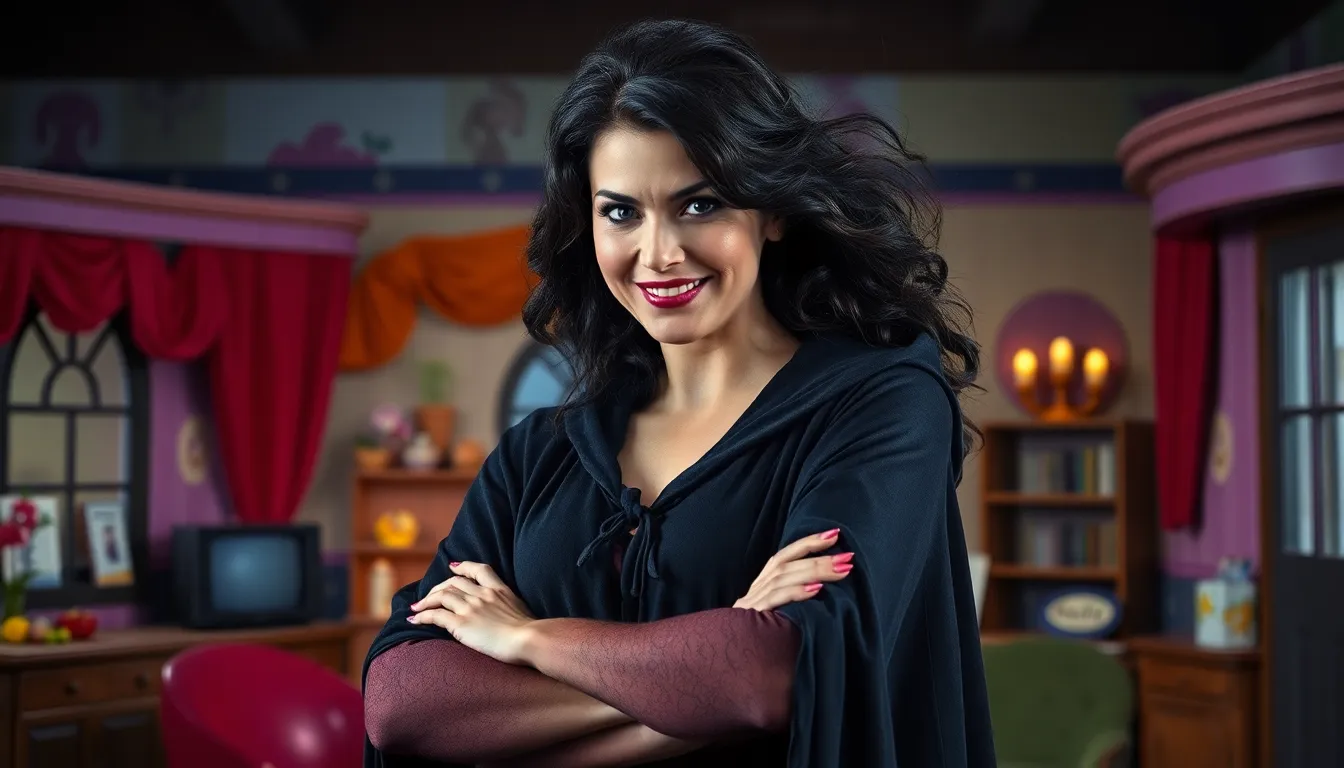In the world of television, certain tropes capture audiences’ imaginations and become iconic. One such trope is the unexpected villain, perfectly embodied in the catchy tune “Agatha All Along” from the hit series WandaVision. This delightful revelation not only served as a plot twist but also showcased the clever writing that keeps viewers hooked.
As fans dissect the layers of this memorable moment, it’s clear that the song and its context tap into a rich tapestry of storytelling traditions. The clever use of misdirection and character development highlights how well-crafted narratives can surprise and engage. Exploring the significance of “Agatha All Along” reveals how it resonates with classic TV tropes while marking a fresh take on the villain archetype.
Table of Contents
ToggleOverview of “Agatha All Along”
“Agatha All Along” encapsulates the essence of plot twists in storytelling. Featured in the Marvel series WandaVision, the song reveals Agatha Harkness as the antagonist. This reveal alters the audience’s perception of the character, showcasing an effective use of misdirection.
The song’s catchy melody enhances its impact, making it memorable. By blending humor with villainy, the creators maintain viewer engagement while challenging established tropes. This duality strengthens character depth and adds layers to the plot.
The lyrics highlight Agatha’s manipulative nature, emphasizing her role in Wanda Maximoff’s journey. They serve as an exposition tool, offering insights into Agatha’s motivations and past actions. This aligns with the unexpected villain trope, as audiences gain a deeper understanding of her intentions.
Overall, “Agatha All Along” reflects innovative writing techniques that elevate storytelling. It provides a fresh take on the traditional villain archetype, resonating with viewers and solidifying its place within TV tropes.
Key TV Tropes in “Agatha All Along”

The song “Agatha All Along” showcases several key TV tropes that enhance its impact within the narrative. These tropes, including the unreliable narrator and the villain twist, contribute to the complexity of Agatha Harkness’s character and the story’s progression.
The Unreliable Narrator
The unreliable narrator trope employs a misleading perspective that shapes audience expectations. In “WandaVision,” Agatha initially presents as a supportive friend, crafting a false sense of security. As the plot unfolds, the revelation of her true intentions subverts this initial portrayal. The song cleverly juxtaposes her seemingly cheerful demeanor with her dark motives. This twist effectively illustrates how appearances can deceive, compelling viewers to reevaluate previous assumptions about her character.
The Villain Twist
The villain twist is central to the effectiveness of “Agatha All Along.” As it reveals Agatha as the unexpected antagonist, this trope enhances the narrative stakes. The catchy hook contrasts with the ominous implications of her actions. Initially positioned as a comedic character, Agatha transforms into a formidable foe, reshaping the audience’s perception of her role in the story. This unexpected pivot not only surprises viewers but also deepens the exploration of her motivations, rendering her a complex figure within the series’ broader themes of morality and power.
Cultural Impact of the Song
“Agatha All Along” significantly impacted popular culture, highlighting its role beyond mere entertainment. The song quickly gained traction on social media platforms, particularly TikTok, where users created countless memes and videos inspired by the catchy melody and witty lyrics. This viral phenomenon demonstrated how the tune resonated not just with fans of WandaVision but also with broader audiences, showcasing its crossover appeal.
The song’s clever writing and humor sparked conversations about villainy in storytelling, prompting viewers to analyze traditional TV roles. Discussions on various forums emphasized how Agatha’s character defied expectations, shifting her from a secondary player to a complex antagonist. The transformation highlighted the flexibility of character archetypes in contemporary narratives, emphasizing the importance of character depth and motivation.
“Agatha All Along” also contributed to the resurgence of musical elements in television series. Its success signaled a renewed interest in integrating songs into storytelling, influencing upcoming shows to explore similar formats. This trend reflects a growing recognition of the power music holds to enhance narrative depth and audience engagement.
Culturally, the song has solidified Agatha Harkness as an iconic character within the Marvel Cinematic Universe. The catchy hook and memorable lyrics have entrench her place in pop culture, creating a lasting legacy that extends beyond WandaVision. The song stands as a tribute to innovative storytelling methods and the evolving landscape of character portrayal, ultimately shaping viewers’ expectations of villains in media.
Character Analysis of Agatha Harkness
Agatha Harkness serves as a compelling antagonist in “WandaVision,” embodying the unexpected villain trope through her multifaceted characterization. Initially portrayed as a kind, quirky neighbor, Agatha’s character reveals layers of complexity that challenge viewer assumptions. Her transition from supportive friend to manipulative sorceress exemplifies a masterclass in character misdirection.
Agatha’s manipulative nature drives the narrative. Her interactions with Wanda Maximoff showcase her as a puppet master, pulling strings from the shadows. The song “Agatha All Along” highlights her scheming motivations, emphasizing her desire for control and power. This depth adds nuance to the character, making her both engaging and formidable.
Her backstory contributes significantly to her development. Known in the comics as a powerful witch with a history of dark magic, Agatha’s cunning and intelligence are paramount. This legacy enhances the audience’s perception of her capabilities and intentions. The revelations about her character align with traditional villain tropes while providing a fresh perspective on the archetype.
The unreliable narrator trope plays an integral role in Agatha’s characterization. By presenting her as a benign ally initially, the narrative invites audiences to see her through a false lens. When the truth emerges, it compels reevaluation of her role in the story. This twist adds to the suspense and intrigue, making her revelation impactful.
Furthermore, Agatha’s transformation elevates the show’s overall theme of morality and power. The juxtaposition between her comedic persona and her darker motives reflects the often-blurred lines between good and evil in storytelling. This complexity enriches the narrative, pushing viewers to explore motivations behind villainy and the nature of power.
Agatha Harkness also represents cultural shifts in villain portrayals. Her character resonates with contemporary audiences, reflecting a demand for depth and relatability in antagonists. By blending humor with malice, Agatha emerges as an iconic character in the Marvel Cinematic Universe. This evolution contributes to ongoing discussions about character dynamics, setting new standards for future narratives in television.
The impact of “Agatha All Along” extends far beyond its catchy melody and clever lyrics. It showcases how innovative storytelling can redefine traditional tropes, particularly the unexpected villain archetype. Agatha Harkness’s character transformation captivates audiences and invites them to question their assumptions about morality and power.
This song not only elevates the narrative within WandaVision but also sparks broader conversations about villainy in contemporary media. As Agatha becomes an iconic figure in the Marvel Cinematic Universe, her story illustrates the evolving expectations of character complexity.
Ultimately, “Agatha All Along” serves as a testament to the power of music in storytelling, leaving a lasting legacy that influences future narratives while engaging viewers in a deeper exploration of character dynamics.


